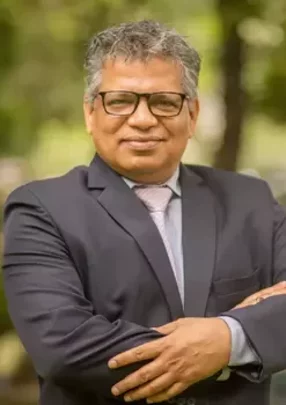
Mridul Kumar Sarkar
CEO
In 1960, when there was no concept of any speciality hospital in the country, the Ispahani Islamia Eye Institute and Hospital (IIEI&H) was incorporated as the first single organ healthcare institution in Bangladesh. Since that time, it has developed to be the lead referral and teaching hospital, with all sub-specialties of Ophthalmology. IIEI&H serves over one million patients annually, many of whom come from remote areas of the country.
The institute and hospital is undergoing a noble and holistic transformation, driven by the goal of enabling quality eye healthcare provision regardless of patient means. Having recently secured the Hospital of the Year Award for Bangladesh in the Healthcare Asia Awards 2019, the not-for-profit organisation’s remarkable expansion and transformation has not gone unnoticed. Mridul Kumar Sarkar, CEO at the institution, has driven significant operational and structural changes since he took charge in October 2015. “When I came here, the scenario was completely different,” he says. “Some systems were almost non-existent, we had to work very hard for a paradigm shift in bringing both those systems and a positive culture. That work was completed within two years, and we then realised the true strength of this organisation.”
During Sarkar’s tenure, the organisation has expanded its presence from four hospitals to 21, and boosted its staff headcount from 565 to around 1,150 – 125 of whom are full-time doctors of various disciplines. “Besides ophthalmologists, we also have cardiologists, anaesthesiologists, clinical pathologists and microbiologists to support the safe and quality clinical services,” says Mr. Sarkar.
Besides its direct services to patients through its main and peripheral hospitals, the organisation has been providing nationwide services in eye care by putting a major focus on expanding out ophthalmic team across a range of positions and levels. Sarkar continues: “Since 1992 we have created 259 ophthalmologists which stands for 25% countries total strength and 643 ophthalmologists for Cataract surgical training (50% of total strength). The hospital has led Bangladesh eye care’s transition into sub-speciality era since 2011, which was of dire need at the time; in total, 151 ophthalmologists for in sub-specialities were created, of whom 63 were international. “One of the unique things in our fellowship is the number of surgical cases that we offer, along with the one-to-one coaching that our institute provides,” Sarkar adds.
The country, and the global ophthalmology community, has historically lacked dedicated ophthalmic nurses and mid-level ophthalmic personnel, a challenge that IIEI&H is working to address. The hospital has produced 170 mid-level ophthalmic technical personnel, has increased its mid-level technical skill training to 149 technicians and has provided ophthalmic Nursing training to 463 home nurses.
Alongside all these mid-level training programmes – including optometry diplomas – from August 2020, the hospital will offer BSc and MSc optometry courses. “Ophthalmic nursing is a very demanding discipline,” elaborates Sarkar. “Across the global eye hospital fraternity – whether in London, the United States, Europe or other Asian countries – there is truly a scarcity of trained ophthalmic nurses.” Sadly, the eye is still a least-priority organ, even for clinical service providers. Conventional nursing curricula, too, still give barely any emphasis to ophthalmology – nursing graduates are eventually ending up being trained on the job, for example. However, the retention of such a skilled workforce is a great challenge. Therefore, IIEI&H is actively considering the introduction of a School of Nursing in Ophthalmology in 2020. This, it is hoped, will ultimately culminate in seamless eyecare operations for all.
Focusing on quality standards for such a large not-for-profit hospital remains a distant dream however, even more so when people are not covered with health insurance. In addition, despite the many measures being taken, patient safety remains an issue. In this regard, IIEI&H is all set for International Gold Quality Accreditation by Q4 of 2019. Achieving this will be a landmark achievement for the hospital, showcasing a visible model for other healthcare organisation to follow.
Simultaneously, the hospital is currently undergoing the process of going paperless through the introduction of advanced ERP to offer multi-faceted benefits, not only in uplifting the quality of services and accelerating the green environment, but also to reduce its service delivery timeline and ensure the optimal utilisation of resources. This will perfectly complement its new quality standards, meet international safety and help to meet clinical research goals.
Such developments are in tune with the hospital’s ongoing focus on futuristic innovations. Another example of this can be found in IIEI&H’s engagement in leveraging various data analytics and artificial intelligence (AI) for research and hospital management purposes.
“Our commitment is to make services available for all who need them, irrespective of their social position or paying capacity. We want to ensure that eyecare is affordable for everyone,” reiterates Sarkar, “and we strive to make available at global standards. To realise the vision of excellence in eyecare across the globe and particularly for the underprivileged, you must blend heads and hearts. That is key to the success of our mission.”
Read the Ispahani Islamia Eye Institute story in the brochure



